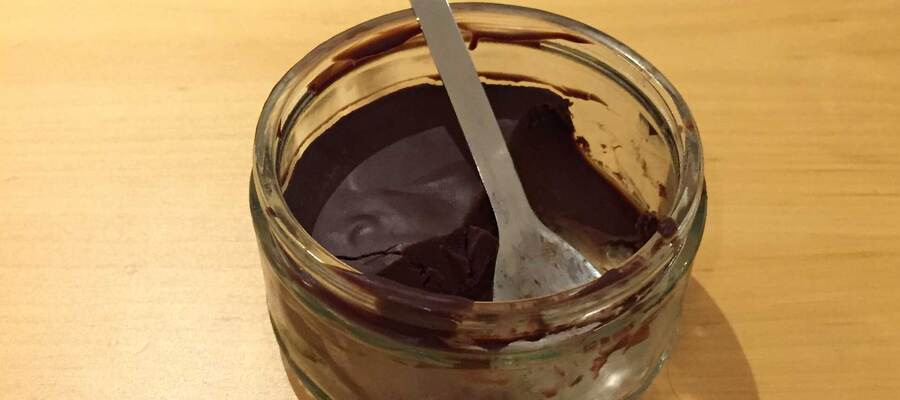
How to reduce unhealthy food with mindful eating
Do you ever feel that you eat too much chocolate, sugar or other substances that are bad for you? Have you ever opened a snack, telling yourself you would only eat half of it, and then realised you had eaten the entire thing?
If you are like me, you may find yourself doing this on a regular basis.
I love chocolate. I love it! I have never tried heroin, but when people tell me about the rush they experience, I emphasise by thinking about the explosion of pure pleasure I experience when I bite into luxurious Belgian chocolate.
Sometimes I make pots of ganache. For the best experience, I have to use milk chocolate. Milk is always a winner. Dark chocolate I like too, but it depends on the situation. Some days I love it, some days I can leave it.
The one ganache I did not eat
Recently, I was eating one such chocolate pot, and stopped half way through. It occurred to me that I was not actually enjoying eating it. Yes, it was chocolatey, but I was not enjoying the bitterness on this particular day.
What would I normally do in this situation? I would keep eating it! Even though I was not enjoying it, and even though I was putting hundreds of kcals of fat and sugar into my body, I would just keep eating it.
But this time, I stopped eating and threw the rest away.
Why do we just keep eating?
Why is it that this is an unusual situation? Why is it that so often we just keep eating long after it has ceased to be pleasant? There are many reasons, and here are just some.
Fat and sugar give your brain a little hit of dopamine. Even though on a rational level we have decided we do not want any more dessert, our lower level functions want to keep taking that hit.
Second, we may be living with fixed expectations and rules. Have you ever noticed that most people finish the food on their plate, especially at restaurants? What are the odds that the amount of food on the plate happened to be exactly the amount of food the person wanted to eat?
The odds, of course, are small. But people just keep eating, long past being full because we have expectations that you "do not waste food" even though the additional food is of no use or advantage to your body. We feel an obligation to process it through our digestive system even at the detriment of our own health, once it has been cooked.
So what do we do about it?
Conveniently, some of the techniques we can use to control anxiety can also be of use here.
First, eat mindfully. Eating can be a very pleasurable activity. But when our mind is all over the place, allowed to run around worrying about things, we lose this experience and fail to notice when we are not enjoying it. Eat in the moment and reap the rewards.
Second, spot the contradiction between how our lower and higher level brain functions are experiencing the situation. In anxiety, we might note "my higher reasoning says spiders are not harmful, but my lower brain is screaming to run". Spotting this, and recognising it as anxiety does not always help, but it does help us calm ourselves down.
Similarly, understanding why our body wants to keep eating, even though our higher brain has decided it is not enjoying the experience anymore, can help us make better choices.
Finally, fight against living my fixed rules. You do not have to finish a chocolate pot if you are not enjoying it. You are paying for every kcal you consume so make it count. Do not let social pressure dictate how you eat.
Okay, but what does this have to do with anxiety?
It connects to anxiety in two ways.
First, a good diet promotes good mental health. Healthy eating helps keep our mood stable, whereas cramming our body with junk food can contribute to low mood.
Second, by practicing the skills we use in anxiety and applying it to our diet, it also strengthens the skills when we want to apply them to worries as well.
Metadata
Published 12 December 2016. Written by Chris Worfolk.